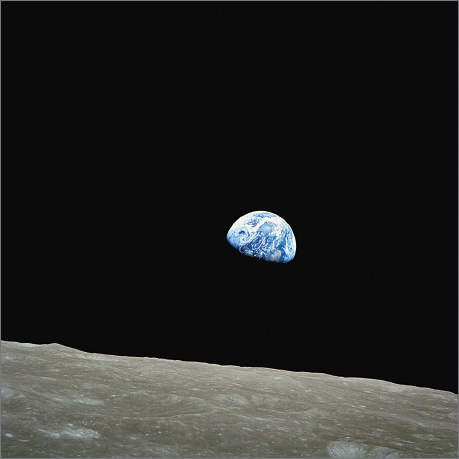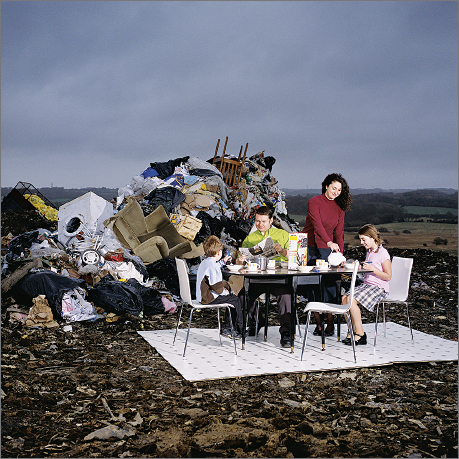America’s History: Printed Page 940
THINKING LIKE A HISTORIAN |  |
The Environmental Movement:
Reimagining the Human-Earth Relationship
The 1970s witnessed the emergence of the environmental movement in the United States. Environmentalism took a variety of forms and initially was embraced by politicians across the political spectrum, including Republican president Richard Nixon, who signed the National Environmental Policy Act in 1970. Yet environmentalism also proved to be politically divisive. The following documents provide a range of perspectives on an important social and political movement discussed in this chapter.
Rachel Carson, Silent Spring, 1962.
For the first time in the history of the world, every human being is now subjected to contact with dangerous chemicals, from the moment of conception until death. In the less than two decades of their use, synthetic pesticides have been so thoroughly distributed throughout the animate and inanimate world that they occur virtually everywhere. They have been recovered from most of the major river systems and even from streams of groundwater flowing unseen through the earth.
Ralph Nader, foreword to Ecotactics: The Sierra Club Handbook for Environmental Activists, 1970. In the Sierra Club’s guide to environmental activism, environmental and consumer rights activist Nader discusses “environmental violence.”
Pollution is violence and environmental pollution is environmental violence. It is a violence that has different impacts, styles and time factors than the more primitive kinds of violence such as crime in the streets. Yet in the size of the population exposed and the seriousness of the harm done, environmental violence far exceeds that of street crime. …
To deal with a system of oppression and suppression, which characterizes the environmental violence in this country, the first priority is to deprive the polluters of their unfounded legitimacy.
President Richard Nixon, State of the Union Address, January 22, 1970.
I shall propose to this Congress a $10 billion nationwide clean waters program to put modern municipal waste treatment plants in every place in America where they are needed to make our waters clean again, and do it now. …
As our cities and suburbs relentlessly expand […] priceless open spaces needed for recreation areas accessible to their people are swallowed up — often forever. Unless we preserve these spaces while they are available, we will have none to preserve. Therefore, I shall propose new financing methods for purchasing open space and parklands now, before they are lost to us.
The automobile is our worst polluter of the air. Adequate control requires further advances in engine design and fuel composition. We shall intensify our research, set increasingly strict standards, and strengthen enforcement procedures — and we shall do it now.
We can no longer afford to consider air and water common property, free to be abused by anyone without regard to the consequences. Instead, we should begin now to treat them as scarce resources, which we are no more free to contaminate than we are free to throw garbage into our neighbor’s yard.
“Earthrise” over the moon’s surface, December 24, 1968. Photo taken by Apollo 8 crewmember Bill Anders, as the Apollo spacecraft orbited the moon.
 NASA.
NASA.Paul Ehrlich, The Population Bomb, 1969. A best-selling book that warned of a coming global overpopulation straining the world’s resources.
Nothing could be more misleading to our children than our present affluent society. They will inherit a totally different world, a world in which the standards, politics, and economics of the 1960s are dead. As the most powerful nation in the world today, and its largest consumer, the United States cannot stand isolated. We are today involved in the events leading to famine; tomorrow we may be destroyed by its consequences.
Our position requires that we take immediate action at home and promote effective action world-wide. We must have population control at home, hopefully through a system of incentives and penalties, but by compulsion if voluntary methods fail. We must use our political power to push other countries into programs which combine agricultural development and population control. And while this is being done we must take action to reverse the deterioration of our environment before population pressure permanently ruins our planet.
President Ronald Reagan, speech at the Republican National Convention, July 17, 1980.
Make no mistake. We will not permit the safety of our people or our environmental heritage to be jeopardized, but we are going to reaffirm that the economic prosperity of our people is a fundamental part of our environment.
Our problems are both acute and chronic, yet all we hear from those in positions of leadership are the same tired proposals for more government tinkering, more meddling, and more control — all of which led us to this state in the first place.
“Waste Produced by a Typical Family in a Year.”
 © Martyn Goddard/Corbis.
© Martyn Goddard/Corbis.
Sources: (1) Rachel Carson, Silent Spring (New York: Mariner Books, 2002), 15; (2) John G. Mitchell and Constance L. Hastings, eds., Ecotactics: The Sierra Club Handbook for Environmental Activists (New York: Trident Press, 1970), 13–15; (3 & 6) Gerhard Peters and John T. Woolley, The American Presidency Project, presidency.ucsb.edu; (5) Louis Warren, ed., American Environmental History (Malden, MA: Blackwell Publishing, 2003), 296.
ANALYZING THE EVIDENCE
Question
Compare sources 1, 2, 3, 5, and 7. What are the different ways the environmental threat was understood and characterized? What kinds of solutions were proposed?
Question
Source 4 is one of the first ever photographs of the earth taken from space. How would this visual perspective encourage viewers to think of the earth’s resources as finite?
Question
How does source 6 help us understand the opposition that developed to environmentalism? Why did some Americans oppose the environmental movement?
PUTTING IT ALL TOGETHER
Question
Using what you have learned about the environmental movement in this chapter and the documents above, construct an essay in which you make a historical argument about the origins of the movement, the issues that it raised, and the opposition that developed. How did the movement shape politics in the 1970s?